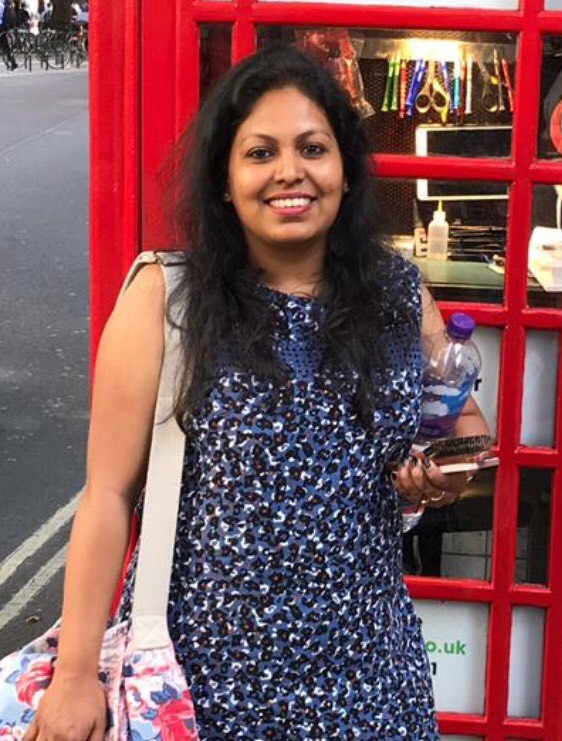 We recently interviewed Suruchi Agarwal, Senior QA Engineer at Moneysupermarket on her thoughts and experience on Diversity in Tech.
We recently interviewed Suruchi Agarwal, Senior QA Engineer at Moneysupermarket on her thoughts and experience on Diversity in Tech.
I chose to study Computer Science at MITS University in India as I had failed miserably in pursuing my childhood dream of becoming a doctor! Also, everyone around me was either studying engineering or pursuing a software-related degree, so, I kind of swayed with the wave. And an IT job after having studied an IT course was an obvious option to choose.
My job is to ensure that software applications (front-end UI/web applications, services and back-end) are quality stamped before they are deployed to production. My role involves understanding business requirements, coordinating with development and product teams for clarifications, performing end to end testing, managing releases and reporting defects. Apart from this being my primary responsibility, I am involved in other community groups and socials within the organisation as well
I would like to think otherwise, but sadly I feel that there is a lack of diversity in the tech sector. Women professionals from ethnic minority backgrounds, are traditionally expected to manage a large proportion of household responsibilities and bringing up children, in addition to working full-time. As a result, men dominate the tech sector.
But I am also glad that now more than ever, the tech industry is pioneering the push for cultural diversity and inclusion in the workforce. Tech giants are forming employee engagement groups which demonstrate their workforce engagement around diversity and inclusion. Female representation in the tech industry is increasing, thus the tech scene is changing by the day.
I have been fortunate to be part of organisations like MSM who are consciously embracing diversity and inclusion as part of their culture. There are loads of initiatives at MSM to foster inclusion such as; flexible working, ‘Represent’ (inclusion group), freedom pot, extended maternity/paternity leave policies, shared parental leave to name a few.
I pursued a full-time degree in Computer Science at University. However, I would say, a tech related degree is not the only thing to have if you want to champion your role in the IT sector. I feel I have only applied 20% of the skills and knowledge gained, while pursuing my tech degree in University to my job roles. The rest I have learned all on the job. Technology is changing every day, so you tend to learn more skills whilst on the job than what you do on a course, that’s my experience.
Yes definitely. There is an assumption that tech jobs are too geeky for girls and someone has to be a nerd to excel in those jobs. Also, gender pay gap is one of the reasons why women don’t consider a tech career.
Spreading awareness about ‘tech’ in various forums, meetups, seminars, etc., assisting young women to understand what mindset it takes to work in the tech industry, what opportunities are present and how tech is evolving. Also, having female role models inspire them with their own success stories will play a big role in encouraging more women to consider a career in tech.
Yes, there is bias in the tech industry based on many factors; gender, region, religion, race and ethnicity to name a few.
I believe tech companies can work towards eliminating these by re-designing technical interviewing styles, creating a culture of trust and inclusion, respecting colleagues, engaging with the diverse community. Apart from this, an emphasis on flexible working, improvement in maternity and parental leave policies would go a long way in addressing these biases.
Technology is everywhere and its advancements have improved virtually every aspect of our lives. Everyone is unique and all of us have a part to play. There is a lot of untapped potential for diversified cultures and people to be involved in the tech sector.
I have come from a country that has one of the highest genders pay gap not just in the tech sector, but in other sectors too.
I think the main reason for this is women are not considered as ‘serious’ and ‘dedicated’ to their jobs as men are. Women, especially from ethnic minorities are encouraged to take up an ‘easy’ and conventional career path, so they can manage both work and home lifestyles. Consequently, they compromise with lower salary levels for the same job roles. There are deeply ingrained prejudices and biases against women, and favouring men, which we all need to proactively work ourselves out of.
I am proud to be working with a company that is actively working towards tackling this issue. Some of the measures being taken in this field are; support provided to women on returning from career/maternity breaks, extended maternity leave, transparency of promotion, pay and reward processes, flexible hours, networking programmes, etc.
I would say go for it with an open mind, positive attitude and an eagerness to learn. Don’t let any personal barriers stop you from exploring new challenges. There are so many opportunities that the tech industry has to offer, so many platforms to showcase your skills, the internet is full of resources, so only sky is the limit!